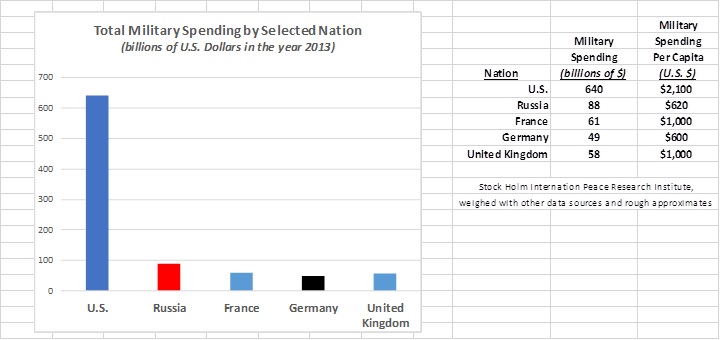by Bob Clark
One Hundred Years Ago in Europe
Arch Duke Franz Ferdinand and his wife Sophie are assassinated, sparking World War I
Today, the United States provides a key element of stability in Europe, but one hundred years ago Europe was prone to widespread continental war.
On June 28th, 1914, Arch Duke Franz Ferdinand (heir to the Austrian throne) and his wife Sophie (Princess of Hohenberg) were gunned downed in a motorcade while visiting Bosnia (an incorporated part of the Austrian-Hungary Empire bordering the nation of Serbia). The assassin was Garvilo Princip who was arrested on the spot. The ensuing investigation revealed he and other associates had been armed in Serbia and smuggled across the Austrian border by a Serbian nationalist organization. Arch Duke Ferdinand’s assassination would set off a downward spiral in diplomacy and national security decisions; and conspire to bring Europe’s largest military powers into war by late July 2014, pitting central powers Germany and Austria against Russia, France and the United Kingdom.
In the immediate aftermath of Arch Duke Ferdinand’s assassination, Austria demanded Serbia launch an investigation into the relations, if any, of the assassin and his associates with Serbian authorities, and that Austrians be included as members of the investigation team within Serbia. Emboldened by Russian support, Serbia rejected Austria’s demand. Austria then moved to declare war on Serbia on July 28, 1914. With Austria mobilizing for war against Serbia, Russia moved to mobilize its army as a matter of being ready if Austria should threaten its territory. With Austria moving its army south towards Serbia, Germany was laid exposed to a Russian invasion of Austria, a risk accentuated by Russia’s mobilization.
In response, Germany mobilized its army and declared war on Russia on July 29th, 1914. France, having a treaty with Russia to intervene militarily in support if Germany moved to war against Russia, followed by mobilizing and going to war with Germany. Meantime, the United Kingdom, having cooperative relations with France, intervened militarily to assist France in its war against Germany. Thus, the close proximity of several equally powerful militaries put continental Europe at continual risk of wide spread war, as in the case of World War I.
Continental Europe today is just as fractious except for the fact it is more of a West versus East conflict; with Germany, the United Kingdom, the United States and in large measure France opposing Russia. The United States is unequal in military prowess among these nations as measured by military expenditure (see accompanying chart and table).
This no doubt helps confine military conflict to spots on the margins in Eastern Europe. The United States presence also nullifies the historical tensions between Germany and France.
By rough accounts, World War I took the lives of 10 million military personnel, and another 5 million civilians. World War I ended in a cease fire of sorts in 1918, leaving continental Europe splintered militarily and unstable. World War II would follow within a generation, resulting in the deaths of 20 million military personnel and another 20 million or more civilians again by rough accounts.
There may be no greater example against American isolationism than the last nearly seven decades of Western Europe stability brought by U.S. direct involvement in continental Europe. (Admittedly, I say this while “knocking-on-wood” seeing the growing instability of Ukraine and Russian military maneuvers in recent months.)


